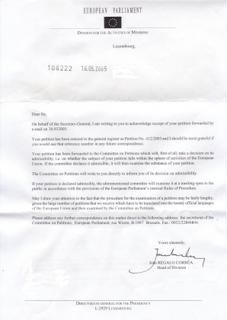Wikileaks wins!
As many internetjunkies may know by now, there has been a huge battle between free speech and censorship (hey, let me dramatize a bit, will you!?) For more info, see: EFF_ACLU_say_Wikileaks_shutdown_harms_First_Amendment_rights or just google the news with 'wikiweaks'.
As a libertarian who supports almost complete free speech (well, yelling 'fire' is not counted as free speech by me, but I've already discussed those things in the past), I always thought the attack at the main wikileaks domainname was totally unjustified, AND as correctly pointed out by many, the judge included, it didn't prohibit the documents in question from being looked at, since the other domains (especially in Belgium) had a huge succes because of it, creating almost a tenfold of hits of the domain/site. It has backfired on a certain naughty Swiss bank, alright. They got so perturbed, they even sued a person who has no official links to Wikileaks, apart from te fact he was asked to be a facebook moderator. (networkworld)
And now, we received even better news; they've dropped all charges. (Swiss bank in Wikileaks case abruptly abandons lawsuit and Swiss Bank Drops Wikileaks' Lawsuit ).
We win, they loose. Doesn't victory taste as napalm in the morning?
Yes, I know; don't point it out; that (mis)quote is so wrong - in more than one respect... but I still felt like saying it.
As a libertarian who supports almost complete free speech (well, yelling 'fire' is not counted as free speech by me, but I've already discussed those things in the past), I always thought the attack at the main wikileaks domainname was totally unjustified, AND as correctly pointed out by many, the judge included, it didn't prohibit the documents in question from being looked at, since the other domains (especially in Belgium) had a huge succes because of it, creating almost a tenfold of hits of the domain/site. It has backfired on a certain naughty Swiss bank, alright. They got so perturbed, they even sued a person who has no official links to Wikileaks, apart from te fact he was asked to be a facebook moderator. (networkworld)
And now, we received even better news; they've dropped all charges. (Swiss bank in Wikileaks case abruptly abandons lawsuit and Swiss Bank Drops Wikileaks' Lawsuit ).
We win, they loose. Doesn't victory taste as napalm in the morning?
Yes, I know; don't point it out; that (mis)quote is so wrong - in more than one respect... but I still felt like saying it.
Labels: censorship, free speech, whistleblowing, wikileaks, wins

